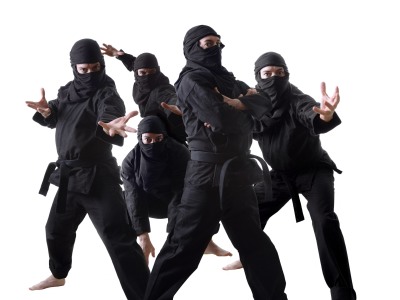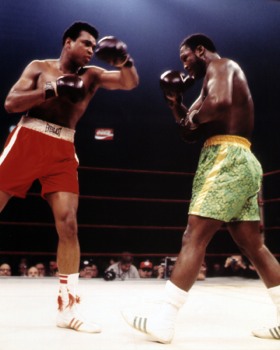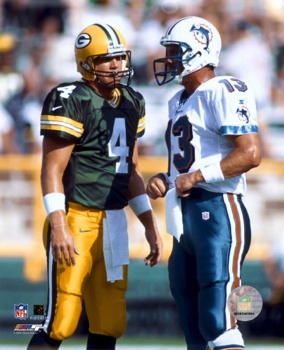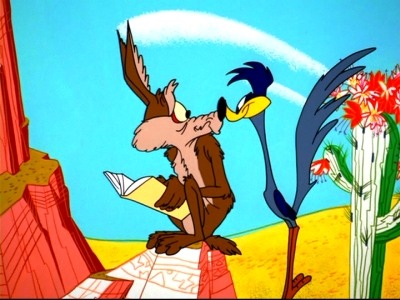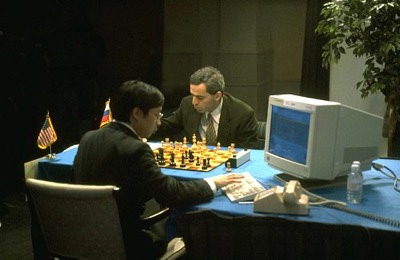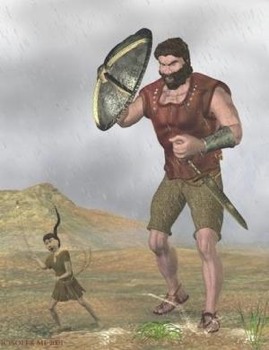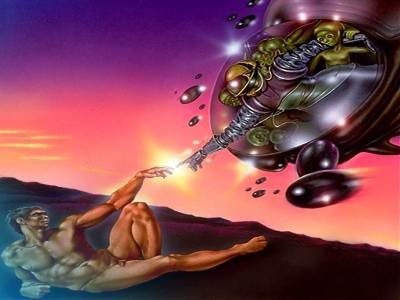This is a rivalry that has been ongoing since the dawn of man and while we may seem to be winning – there are two sides to the story. Rather than describing the rivalry – I have listed a few victories for nature and man – you be the judge of who is leading this battle. Victories For Man Cured diseases Enormous cities – we conquered the land Near absolute dominance over animals (we can defend or cure ourselves from even the most venomous creatures) Victories For Nature Incurable Diseases Inhospitable regions (including the oceans which we have yet to conquer despite their vast size) Extreme weather For all of our efforts to suppress nature when it suits us, she manages to find a way to fight back. For every step forward, we appear to take a step back. Who the final victor will be – none of us know, but it is certainly interesting to speculate.
No other internet meme has triggered a more brutal conflict than the one pitting these two ruthless enemies against each other: the infamous pirates versus the legendary ninjas. These two adversaries have found themselves in natural antagonism along the recurrent battlefields of cyberspace. The origins of this bitter feud can be traced to a simple but intriguing question: “Who would win in a fight: a pirate, or a ninja?” Since then, both sides have developed a bitter hate for each other, which has soon escalated into an all-out war for the Supreme Crown of Awesome. Although their opposition doesn’t seem evident at first glance, it’s their intrinsic qualities which make them natural enemies. The aggressive, no-holds-barred, outspoken corsair, wielding devastating weapons of high-seas warfare; against the cold, calculating, and devious techniques of the stealthy Japanese assassin. The radically dissimilar styles and philosophies of war make them admirable opponents, especially when it comes to defending their superiority over the other in countless chat rooms and message boards The internet still runs red with blood of both gunpowder-pelted shinobi corpses and shuriken-ridden buccaneer carcasses; and yet there seems to be no end in sight for what is probably the coolest war the world has ever seen.
When it comes to once-in-a-lifetime, legendary sporting clashes, look no further than the strife of the two great heavyweight champions Cassius Clay (a.k.a. Muhammad Ali), and Joe “Smokin’ Joe” Frazier, arguably the greatest rivalry in boxing history. It’s no fluke that their first boxing match was called “The Fight of the Century”. The then-undefeated champions went head-to-head for the first time in 1971, in an eagerly awaited bout sure to make history. And it seems to have lived up to all the hype. Pitting Frazier’s punching power against Ali’s speed and knack, the truly exciting match displayed the best the boxing world could offer; but only one could be declared champion. Although Ali proved his worth during the early rounds, Frazier held his own and by the later rounds had Ali against the ropes. After a definitive hook in the 15th round which crushed Ali’s jaw, Frazier was unanimously declared winner, marking Ali’s first-ever professional loss. After the legendary bout, the rivalry between the two was kept alive both in and out of the ring. Verbal attacks between the two were common, and certainly fuelled a hate for each other that would flesh out once the gloves were on. After a second mostly unremarkable match which Ali won, the two boxers faced each other for the last time in 1975 in the “Thrilla in Manila” match. Their final fight was a brutal and relentless one, and after 14 fierce rounds, Frazier’s trainer decided to end the bout, just as Ali was pleading for the same. Ali was declared the winner of the match (and fainted seconds after). The Ali-Frazier era has since been considered a golden era of boxing, and the two rivals have earned their rightful place in sporting history.
Yet another item that could easily span a list of its own. If there’s a place nowadays that symbolizes the timeless rivalry between two opposing sides, it ought to be in sports. In every sport, in any given region of the world, you’ll probably find a bitter rivalry between two sports teams, an endless grudge between two (and sometimes three) sports teams who year after year face each other in tournaments and exhibition matches to prove “once and for all”, again and again, who the best team is. Every city, every region has its own classic team rivalry. The grudges can be local, between cities, between countries, between entire continents, you name it. Wherever you live, you’re probably familiar with a certain intense clash between two rival teams, a rivalry that feels as old and natural as time itself, and that perhaps you feel as being part of. Football, Baseball, Rugby, Basketball, American Football, Cricket, Ping-Pong, whatever; every sport has many of these ultimate rivalries. There’s only one way to resolve these conflicts, though: cheer them on with all your heart as they go out to the field and duke it out.
Since ancient times, politics has been an undeniable driving element of human history. And global contemporary politics has experienced an evolution towards two opposing sides: the Right and the Left. Although the dynamics of these two factions throughout history have been anything but simplistic and dualistic, there are nonetheless discernible ideologies within the so-called “Political Spectrum”. Originally referring to seating arrangements in the French parliament of the 18th century, these two terms evolved to represent particular ideologies which would become very important in the following centuries. The “Right Wing” roughly represents conservative and traditional values, as well as an inclination for Capitalism, individualism, and Nationalism. The “Left Wing” refers for the most part to liberal, socially progressive and equalitarian values of government, with a penchant for communitarian and socialist ideas. As with anything, all these political and socioeconomic terms aren’t exclusive to either side, and in fact have been present in either side in one way or another throughout history. Some people may be most familiar with this opposition of parties in time of elections, when “Red” parties face off against “Blue” parties. But within elected governments themselves, this clash between Right and Left is common. And of course, there is also a conflict of Right and Left within dictatorships, which have been both of “Right” and “Left” nature. Throughout history, in fact, we have seen the best and the worst of both ends. Repressive governments can be authoritarian and Fascist, that is, of an “Extreme Right” nature; others can do away with democracy altogether and embrace Communist ideals, known as “Extreme Left” governments. But for the most part, both political tendencies have seen both times of prosperity and times of crisis, as they have been embraced by countries from all over the world.
The highest representatives of natural rivalry in the Animal Kingdom of cartoons, the peculiar dynamics of the Coyote (Carnivorus desperatus) and its prey, the Road Runner (Supersonicus marvelous) are a sight to behold along their natural habitat of the southwest American desert. Despite persistent efforts to catch the remarkably fast Road Runner with bizarre ACME devices and convoluted trap contraptions, the self-proclaimed “super-genius” Wile E. Coyote has been, as of today, completely unable to outwit its succulent feathered prey. But what is the real culprit of the Coyote’s recurrent failure? An irrational zeal to catch its prey stunted by a permanent state of starvation? An endless line of faulty ACME Corporation products overlooked by the competent quality control departments? Or the fact that the Road Runner seems to be perfectly impervious to any and all laws of gravity, causality, and probability? Whatever the reason, one cannot help but praise the unwavering determination of the wild Coyote to catch its formidable rival the Road Runner, even if we know he might never be able to.
This was the one notable omission of the Top 10, and as such requires some explanation. In 1996 and 1997, world chess champion Garry Kasparov, considered by some to be the greatest chess player of all time, was pitted against Deep Blue, a chess-playing computer developed by IBM. Garry Kasparov had already defeated its predecessor, Deep Thought, in 1989. But this upgraded version proved a much more worthy opponent. In the first set of six games, Kasparov won, but only after a win from each, two draw games (by agreement), and an offer from him to draw again on the fifth game. The next year, a rematch was set, and turned out with similar results: a win from each for the first two games, three consecutive draws, and finally a victory for Deep Blue. Kasparov, and the world, were dumbfounded, as it was the first time a machine had beat a world champion in a match. Although Kasparov wanted a rematch, IBM retired Deep Blue before that could happen. But the importance of this result is definitely beyond that of chess. Deep Blue’s victory marked a definitive victory of the machine over its creator, man. Does it mean that the creation has already become superior to its creator? What will happen when computers become more proficient than humans in more and more activities? Will humans become obsolete? The answers aren’t clear, but Deep Blue certainly gave us a hint of what will become of the struggle of Man vs. Machine.
The all-important struggle of Good vs. Evil makes a familiar appearance in the form of classic Hero vs. Villain rivalries in fiction. The quintessential Hero, representing all that is good and noble, has to face a vile nemesis intent on making evil and wretchedness reign supreme. And thus, the biggest and most famous clashes in fiction come to be. The Hero of the story must defeat the Villain in order to re-establish peace and justice in the world, and sets on to a great adventure to face all the obstacles that the Villain will place in his or her path. The final battle between the Hero and the Villain is inevitable, and it is at that moment when we realize how different, and sometimes how very alike, the Hero and the Villain really are. Maybe the Hero defeats the Villain once and for all, or maybe the Villain will live to see another day, and thus the conflict between the two will become eternal and legendary. The examples in fiction are countless and well-known. Modern audiences will probably be more familiar with the likes of Darth Vader vs. Luke Skywalker, Superman vs. Lex Luthor, Batman vs. The Joker, Harry Potter vs. Lord Voldemort, etc. These and many other examples of the Hero/Villain rivalry are diverse and quite emblematic. In fact, you should probably stay tuned for a fictional rivalry list in the near future…
This rivalry could also be considered a “Hero vs. Villain” sort of affair, but perhaps it’s a bit more complex than that. The Old Testament tells the story of the conflict between the Israelites and the Philistines. Goliath, the humongous champion warrior, is constantly taunting the Israelites to send out their champion warrior so he can face him and decide the outcome of the war in a single battle. But no one dares to confront the behemoth that is Goliath. Young David, future king of Israel, hears Goliath’s words and claims he is not afraid of him, accepting to battle him with just a sling and five stones. The armoured, shield-bearing Goliath towering way above David laughs at him, but David simply says that he’s got God by his side, and with that he strikes down Goliath with a single stone’s throw to the head. Now, this tale could simply be about how the people of Israel always have God by their side; or, it could tell of an elementary struggle of Good vs. Evil, and how Good will surely win in the end. But, it could also represent the ways in which a strong faith in God can beat anything; or how appearances can be deceiving; or how size doesn’t matter; or even the eternal struggle of the underdog against seemingly insurmountable odds. This classic story can mean many different things to different people; as such, it has become an intrinsic aspect of our modern culture, and whether you’re religious or not, it may teach us a lesson about life if we just pay attention.
In the great quest for understanding the nature of our world, Science and Religion have clashed in multiple occasions over which of them holds the real truths to the biggest questions of the universe. In fact, both usually display contradicting views concerning subjects such as the origin of the universe, the nature of humanity, and the meaning of life. Although each holds entirely opposing values, such as the reliance on faith vs. the reliance on reason and the scientific method, the urge of each to answer similar and overlapping inquiries has been cause for much confusion and hatred. Creationism vs. Evolution, for example, is arguably the clearest representative of the modern clash between religion and science. Philosophers, both classic and modern, have studied the problem of where religion should stop and science should start, and viceversa. What is God? What is the soul? What is life? What is the origin of the universe? What is the nature of humanity? Why are we here? These are all questions that have been tackled by both religions and sciences, with obviously differing results. So it would seem that science is doomed to be in unassailable conflict with religion; but there are also those (St. Thomas Aquinas, for example) who have tried to reconcile the two to reach a mutual understanding in order to reach the ultimate truths with both. Hopefully, one day religion and science will finally reach the same place both have been looking for all along, and celebrate together…

